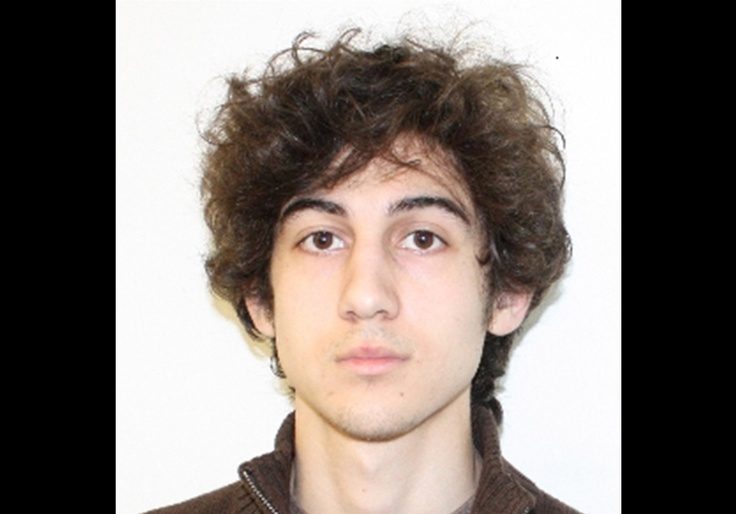The Supreme Court on Friday reinstated Boston Marathon bomber Dzhokhar Tsarnaev’s death sentence.
The High Court’s conservative majority reversed a federal appeals court that flagged alleged errors in jury selection and sentencing at Tsarnaev’s 2015 trial. President Joe Biden’s Justice Department imposed a moratorium on federal executions in 2021, so Tsarnaev will not be put to death in the near term. But Friday’s result means a future administration could oversee his execution.
Justice Clarence Thomas delivered the opinion for a 6-3 Court over the dissent of the liberal trio.
"Dzhokhar Tsarnaev committed heinous crimes. The Sixth Amendment nonetheless guaranteed him a fair trial before an impartial jury. He received one," Thomas wrote.
The Biden Justice Department pushed the justices to reimpose Tsarnaev’s death sentence. At oral arguments in Tsarnaev’s case, a Justice Department lawyer acknowledged the policy shift but indicated a future administration could be of a different mind and able to carry out the sentence.
Heightening the uncertainty surrounding Tsarnaev’s fate, the top federal prosecutor issued a short statement Friday that acknowledged the decision but made no mention of a possible execution.
"Legal rulings don’t erase trauma and pain," U.S. Attorney Rachael Rollins said. "Our focus today, and always, is on the hundreds of families that were deeply impacted and traumatized by this horrific act of domestic terrorism."
A three-judge panel of the First U.S. Circuit Court of Appeals set aside Tsarnaev’s death sentence for two reasons. First, they said the judge was wrong to exclude evidence tying Tsarnaev’s older brother and co-conspirator Tamerlan Tsarnaev to a triple murder, which the defense called a "key indoctrinating event" that formed the basis for Tamerlan’s psychological dominance over Tsarnaev. Second, it said the trial judge didn’t adequately screen jurors for bias incurred through media coverage.
The appeals court decision did not vacate Tsarnaev’s convictions. The only question was whether he would be executed or spend the rest of his life in prison. Tsarnaev is detained at ADX Florence, the federal maximum security prison in Colorado.
In Friday’s decision, the justices said the appeals court was wrong on both counts.
FBI agents investigating the marathon bombing connected Tamerlan with a grisly crime in Waltham, Mass., that took place on the 10-year anniversary of the Sept. 11 attacks. Authorities found three men bound in an apartment with their throats slit in an apparent attempt at decapitation. The bodies were covered with cash and marijuana—one of the victims was familiar to police as a drug dealer.
A friend of Tamerlan’s, Ibragim Todashev, told investigators that he and Tamerlan jointly committed the crime. In a bizarre turn of events, Todashev then attacked his interrogators just as he was committing his account of the crime to paper. An agent shot and killed him in self-defense.
Tsarnaev wanted to present the Waltham murders to the jury at the sentencing phase of the trial. By the defense’s telling, the murders profoundly indoctrinated Tsarnaev in jihad and reinforced Tamerlan’s violent dominion over the family. The defense argued Tsarnaev would not have participated in the marathon bombing without Tamerlan’s brutal and assertive nature, so a life sentence would be more appropriate than the death penalty.
The trial judge excluded the Waltham murders, and the Court said Friday that decision was justifiable.
"No matter how Dzhokhar presented the evidence, its bare inclusion risked producing a confusing mini-trial where the only witnesses who knew the truth were dead. The District Court did not abuse its discretion by declining to lead the jury into this evidentiary detour," Thomas wrote.
As to jury selection, the High Court noted that the trial judge had prospective jurors complete a 100-question questionnaire, which included questions about media consumption. The appeals court said the judge should have assessed the "kind and degree" of consumption, but Thomas said there was no basis for that kind of requirement. In general, appeals courts give trial judges wide latitude on jury selection, correcting only in the case of a clear mistake.
In his dissent, Justice Stephen Breyer argued the Waltham murders were so relevant to Tsarnaev’s defense it was a mistake to exclude them. And the evidence was reliable, he added, noting FBI investigators used it to obtain a search warrant for Tamerlan’s car. Breyer is the Court’s leading critic of capital punishment.
"Evidence that Tamerlan participated in (and potentially orchestrated) one set of ideologically motivated murders in 2011 supports the claim that Tamerlan was the violent, radicalizing force behind the ideologically motivated bombings a year and a half later," Breyer wrote.
Tsarnaev’s execution is unlikely in the near term. The Justice Department has given no indication it will lift its moratorium any time soon. And Tsarnaev can file a series of appeals that will take years to adjudicate.
The Trump administration resumed federal executions after a 17-year hiatus. Before Attorney General Merrick Garland imposed a moratorium, the federal government used pentobarbital injections to carry out the executions. Thirteen inmates were put to death during the Trump years, among them child rapist murderers and white supremacist killers.
Friday’s case is No. 20-443 U.S. v. Tsarnaev.
